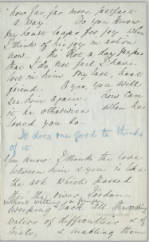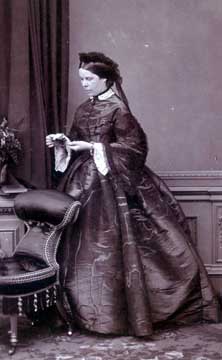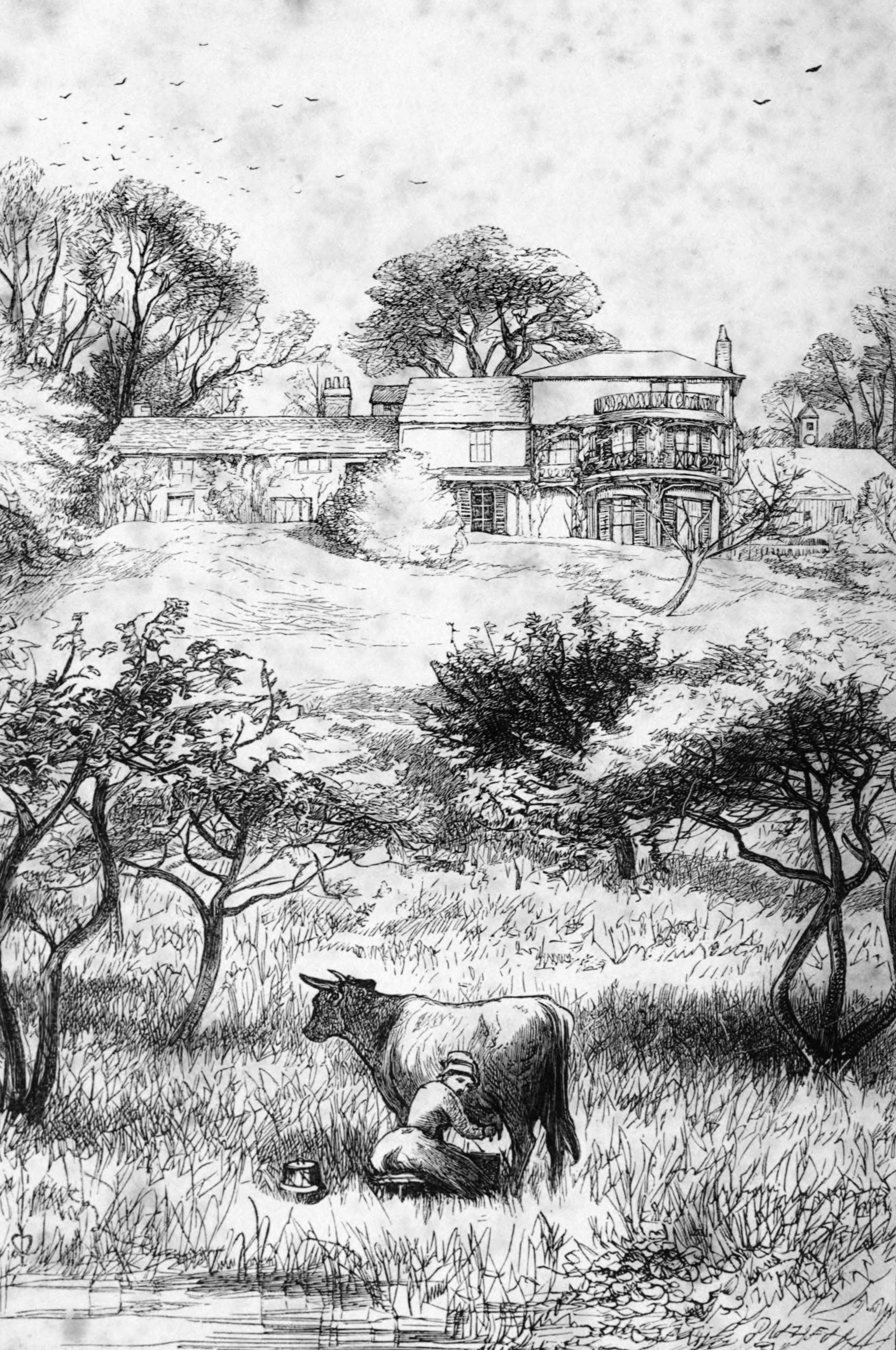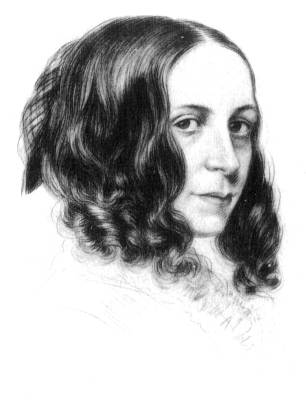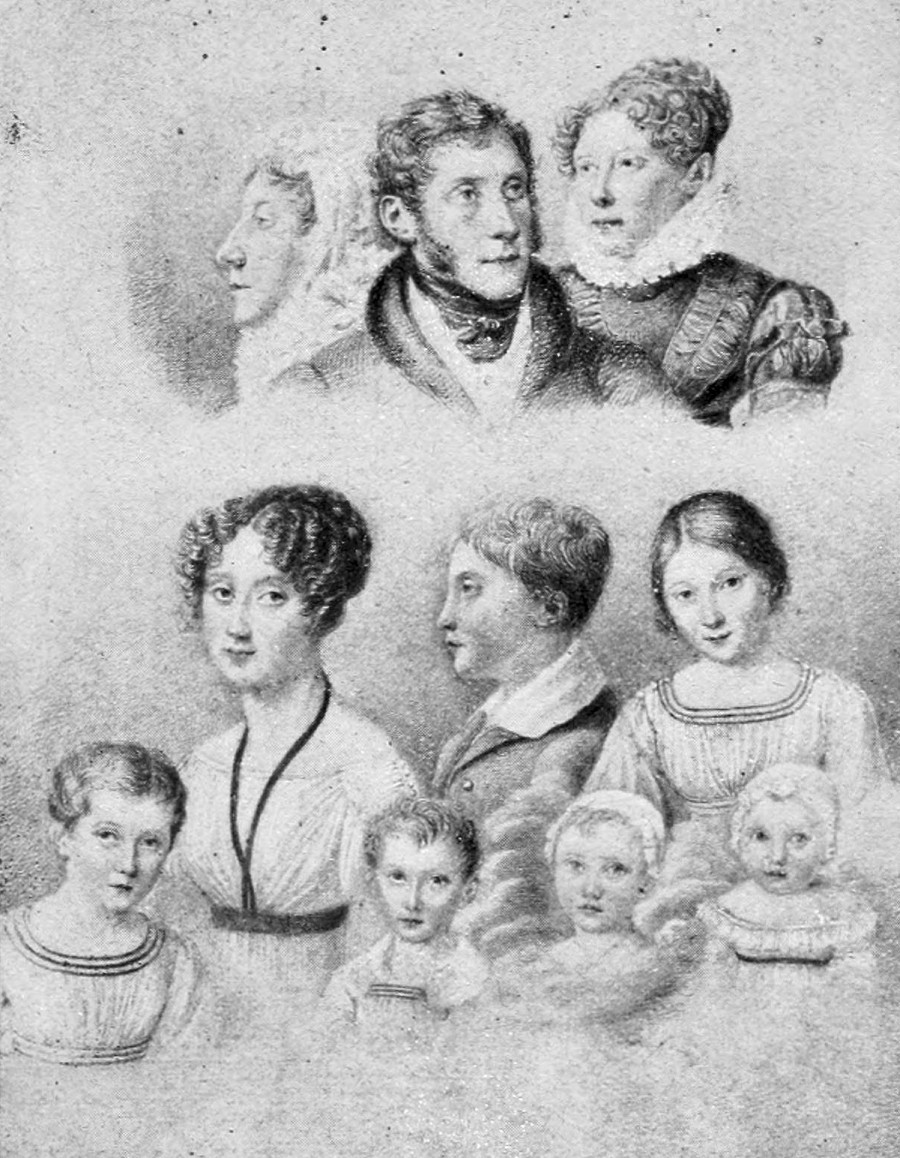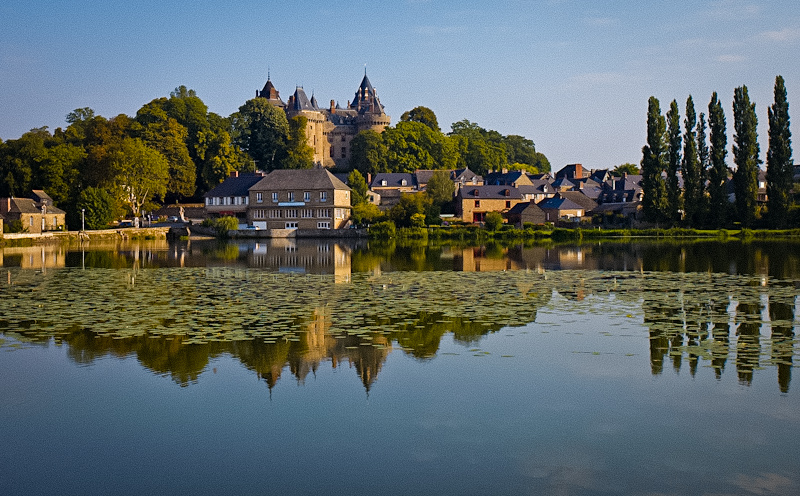|
Mary Elizabeth Mohl
Mary Elizabeth Mohl or Mary Elizabeth Clarke (22 February 1793 – 15 May 1883) was a British writer who was known as a salon hostess in Paris. She was known by her nickname of "Clarkey". She was admired for her independence and conversation. She eventually married the orientalist Julius von Mohl. She was an ardent Francophile, a feminist, and a close friend of Florence Nightingale. She wrote about her interest in the history of women's rights. Life Mary Elizabeth Clarke was born in Westminster in 1793.Patrick Waddington, 'Mohl, Mary Elizabeth (1793–1883)', ''Oxford Dictionary of National Biography'', Oxford University Press, 2004; online edn, Jan 200accessed 5 Feb 2015/ref> After the death of her father, Charles Clarke, Mary, at age 8, her mother, Elizabeth, and grandmother moved to France in 1801. Both her guardians were strong and independent-minded women. Her Scottish grandmother had hobnobbed with thinkers like David Hume and Adam Smith in Edinburgh and before the F ... [...More Info...] [...Related Items...] OR: [Wikipedia] [Google] [Baidu] |
Westminster
Westminster is the main settlement of the City of Westminster in Central London, Central London, England. It extends from the River Thames to Oxford Street and has many famous landmarks, including the Palace of Westminster, Buckingham Palace, Westminster Abbey, Westminster Cathedral, Trafalgar Square and much of the West End of London, West End cultural centre including the entertainment precinct of West End theatre. The name () originated from the informal description of the abbey church and royal peculiar of St Peter's (Westminster Abbey), west of the City of London (until the English Reformation there was also an Eastminster abbey, on the other side of the City of London, in the East End of London). The abbey's origins date from between the 7th and 10th centuries, but it rose to national prominence when rebuilt by Edward the Confessor in the 11th century. With the development of the old palace alongside the abbey, Westminster has been the home of Governance of England, Engla ... [...More Info...] [...Related Items...] OR: [Wikipedia] [Google] [Baidu] |
Juliette Récamier
Jeanne Françoise Julie Adélaïde Récamier (; 3 December 1777 – 11 May 1849), known as Juliette (), was a French socialite whose salon drew people from the leading literary and political circles of early 19th-century Paris. An icon of neoclassicism, Récamier cultivated a public persona as a great beauty, and her fame quickly spread across Europe. She befriended many intellectuals, sat for the finest artists of the age, and spurned an offer of marriage from Prince Augustus of Prussia. Family and education A native of Lyon, she was the only child of notary and King's counsellor Jean Bernard and his wife, the former Julie Matton. In 1784, her father was named receiver of finance under Calonne. She was briefly educated at the Couvent de la Déserte in Lyon, until her family moved to Paris. The name "Juliette" came about as a diminutive of "Julie".Edouard Herriot, ''Madame Récamier'', pp. 1–2 Beautiful, accomplished, and possessing a love of literature, Récamier was desc ... [...More Info...] [...Related Items...] OR: [Wikipedia] [Google] [Baidu] |
Augusta Stanley
Lady Augusta Elizabeth Frederica Stanley (3 April 1822 – 1 March 1876), was daughter of Thomas Bruce, 7th Earl of Elgin and Elizabeth Oswald. She was brought up in Paris after her father died and later served as lady-in-waiting to Queen Victoria. She met and married Arthur P. Stanley, Dean of Westminster at the home of Mary Elizabeth Mohl in Paris. She unveiled Joseph Edgar Boehm's statue of John Bunyan in Bedford in 1874. Lady Augusta is buried alongside her husband in the Henry VII Lady Chapel at Westminster Abbey. A memorial in her honour was commissioned by Queen Victoria and stands at Frogmore. Bibliography Some of Stanley's letters are published in ''Letters of Lady Augusta Stanley: A Young Lady at Court 1849-1863'' edited by the Dean of Windsor and Hector Bolitho Henry Hector Bolitho (28 May 1897 – 12 September 1974) was a New Zealand writer, novelist and biographer, who had 59 books published. Widely travelled, he spent most of his career in England. Biogr ... [...More Info...] [...Related Items...] OR: [Wikipedia] [Google] [Baidu] |
George Eliot
Mary Ann Evans (22 November 1819 – 22 December 1880; alternatively Mary Anne or Marian), known by her pen name George Eliot, was an English novelist, poet, journalist, translator, and one of the leading writers of the Victorian era. She wrote seven novels: ''Adam Bede'' (1859), ''The Mill on the Floss'' (1860), ''Silas Marner'' (1861), ''Romola'' (1862–1863), ''Felix Holt, the Radical'' (1866), ''Middlemarch'' (1871–1872) and ''Daniel Deronda'' (1876). Like Charles Dickens and Thomas Hardy, she emerged from provincial England; most of her works are set there. Her works are known for their literary realism, realism, psychological fiction, psychological insight, sense of place and detailed depiction of the countryside. ''Middlemarch'' was described by the novelist Virginia Woolf as "one of the few English novels written for grown-up people"Woolf, Virginia. "George Eliot." ''The Common Reader''. New York: Harcourt, Brace, and World, 1925. pp. 166–176. and by Martin Amis an ... [...More Info...] [...Related Items...] OR: [Wikipedia] [Google] [Baidu] |
William Nightingale
William Edward Nightingale ( Shore; 15 February 1794 – 5 January 1874) was a noted English Unitarian and the father of Florence Nightingale, the founder of modern nursing. Biography William Nightingale (known also as W.E.N.) was born William Edward Shore on 15 February 1794, in Lea, Derbyshire. His father was William Shore (1752–1822). His mother was Mary née Evans (1760–1853) who died at Tapton House, Sheffield. She was the niece of one Peter Nightingale, a lead mining entrepreneur, under the terms of whose will William Shore inherited the Lea Hall estate in Derbyshire, but also assumed the name and arms of Nightingale in 1815. He was appointed Sheriff of Hampshire in 1828. He had two sisters, Anne and Mary. By his early twenties, William Nightingale had an income of £8,000 which made him very wealthy. He liked to hunt, read, and follow social issues of his day. As well as Lea Hurst, he also owned Embley Park, an estate in Hampshire. In 1818, when he was 23 and ... [...More Info...] [...Related Items...] OR: [Wikipedia] [Google] [Baidu] |
Anthony Trollope
Anthony Trollope ( ; 24 April 1815 – 6 December 1882) was an English novelist and civil servant of the Victorian era. Among the best-known of his 47 novels are two series of six novels each collectively known as the ''Chronicles of Barsetshire'' and the Palliser novels, as well as his longest novel, ''The Way We Live Now''. His novels address political, social, and gender issues and other topical matters. Trollope's literary reputation dipped during the last years of his life, but he regained somewhat of a following by the mid-20th century. Biography Anthony Trollope was the son of barrister Thomas Anthony Trollope and the novelist and travel writer Frances Milton Trollope. Though a clever and well-educated man and a Fellow of New College, Oxford, Thomas Trollope failed at the Bar due to his bad temper. Ventures into farming proved unprofitable, and his expectations of inheritance were dashed when an elderly, childless uncle remarried and fathered children. Thomas Trollope was ... [...More Info...] [...Related Items...] OR: [Wikipedia] [Google] [Baidu] |
Elizabeth Barrett Browning
Elizabeth Barrett Browning (née Moulton-Barrett; 6 March 1806 – 29 June 1861) was an English poet of the Victorian era, popular in Britain and the United States during her lifetime and frequently anthologised after her death. Her work received renewed attention following the feminist scholarship of the 1970s and 1980s, and greater recognition of women writers in English. Born in County Durham, the eldest of 12 children, Elizabeth Barrett wrote poetry from the age of eleven. Her mother's collection of her poems forms one of the largest extant literature, extant collections of juvenilia by any English writer. At 15, she became ill, suffering intense head and spinal pain for the rest of her life. Later in life, she also developed lung problems, possibly tuberculosis. She took laudanum for the pain from an early age, which is likely to have contributed to her frail health. In the 1840s, Elizabeth was introduced to literary society through her distant cousin and patron John Kenyon ... [...More Info...] [...Related Items...] OR: [Wikipedia] [Google] [Baidu] |
William Thackeray
William Makepeace Thackeray ( ; 18 July 1811 – 24 December 1863) was an English novelist and illustrator. He is known for his satirical works, particularly his 1847–1848 novel '' Vanity Fair'', a panoramic portrait of British society, and the 1844 novel '' The Luck of Barry Lyndon'', which was adapted for a 1975 film by Stanley Kubrick. Thackeray was born in Calcutta, British India, and was sent to England after his father's death in 1815. He studied at various schools and briefly attended Trinity College, Cambridge, before leaving to travel Europe. Thackeray squandered much of his inheritance on gambling and unsuccessful newspapers. He turned to journalism to support his family, primarily working for ''Fraser's Magazine'', ''The Times'', and '' Punch''. His wife Isabella suffered from mental illness. Thackeray gained fame with his novel ''Vanity Fair'' and produced several other notable works. He unsuccessfully ran for Parliament in 1857 and edited the ''Cornhill Magazine' ... [...More Info...] [...Related Items...] OR: [Wikipedia] [Google] [Baidu] |
Nightingale Letter
The common nightingale, rufous nightingale or simply nightingale (''Luscinia megarhynchos''), is a small passerine bird which is best known for its powerful and beautiful song. It was formerly classed as a member of the thrush family Turdidae, but is now more generally considered to be an Old World flycatcher, Muscicapidae. It belongs to a group of more terrestrial species, often called chats. Etymology "Nightingale" is derived from "night" and the Old English ''galan'', "to sing". The genus name ''Luscinia'' is Latin for "nightingale" and ''megarhynchos'' is from Ancient Greek ''megas'', "great" and ''rhunkhos'' "bill". Subspecies *Western nightingale (''L. m. megarhynchos'') – western Europe, North Africa and Asia Minor, wintering in tropical Africa *Caucasian nightingale (''L. m. africana'') – the Caucasus and eastern Turkey to southwestern Iran and Iraq, wintering in East Africa *Eastern nightingale (''L. m. golzii'') – the Aral Sea to Mongolia, wintering in coastal ... [...More Info...] [...Related Items...] OR: [Wikipedia] [Google] [Baidu] |
Alessandro Manzoni
Alessandro Francesco Tommaso Antonio Manzoni (, , ; 7 March 1785 – 22 May 1873) was an Italian poet, novelist and philosopher. He is famous for the novel ''The Betrothed (Manzoni novel), The Betrothed'' (orig. ) (1827), generally ranked among the masterpieces of world literature. The novel is also a symbol of the Italian Italian unification, Risorgimento, both for its patriotic message and because it was a fundamental milestone in the development of the modern, unified Italian language. Manzoni also contributed to the stabilization of the modern Italian language and helped to ensure linguistic unity throughout Italy. He was an influential proponent of Liberal Catholicism in Italy. His work and thinking has often been contrasted with that of his younger contemporary Giacomo Leopardi by critics. Early life Manzoni was born in Milan, Italy, on 7 March 1785. Pietro, his father, aged about fifty, belonged to an old family of Lecco, originally feudal lords of Barzio, in the Valsass ... [...More Info...] [...Related Items...] OR: [Wikipedia] [Google] [Baidu] |
Claude Charles Fauriel
Claude Charles Fauriel (; 21 October 1772 – 15 July 1844) was a French historian, philologist and critic. Biography He was born at Saint-Étienne, Loire (department), Loire, the son of a poor joiner, but received a good education in the Oratory of Saint Philip Neri, Oratorian colleges of Tournon-sur-Rhône, Tournon and Lyon. He was twice in the army—at Perpignan in 1793, and in 1796–1797 at Briançon, as private secretary to Joseph Servan de Gerbey, General J Servan de Gerbey (1741–1808); but he preferred the civil service and the companionship of his friends and his books. In 1794 he returned to St Etienne, where, but only for a short period, he filled a municipal office; and from 1797 to 1799 he devoted himself to strenuous study, more especially of the literature and history, both ancient and modern, of Greece and Italy. Having paid a visit to Paris, France, Paris in 1799, he was introduced to Joseph Fouché, minister of police, becoming his private secretary. Though he ... [...More Info...] [...Related Items...] OR: [Wikipedia] [Google] [Baidu] |
François-René De Chateaubriand
François-René, vicomte de Chateaubriand (4 September 1768 – 4 July 1848) was a French writer, politician, diplomat and historian who influenced French literature of the nineteenth century. Descended from an old aristocratic family from Brittany, Chateaubriand was a royalist by political disposition. In an age when large numbers of intellectuals turned against the Church, he authored the ''The Genius of Christianity, Génie du christianisme'' in defense of the Catholic faith. His works include the autobiography ''Mémoires d'Outre-Tombe'' (''Memoirs from Beyond the Grave''), published posthumously in 1849–1850. Historian Peter Gay said that Chateaubriand saw himself as the greatest lover, the greatest writer, and the greatest philosopher of his age. Gay states that Chateaubriand "dominated the literary scene in France in the first half of the nineteenth century". Biography Early years and exile Born in Saint-Malo on 4 September 1768, the last of ten children, Chate ... [...More Info...] [...Related Items...] OR: [Wikipedia] [Google] [Baidu] |
